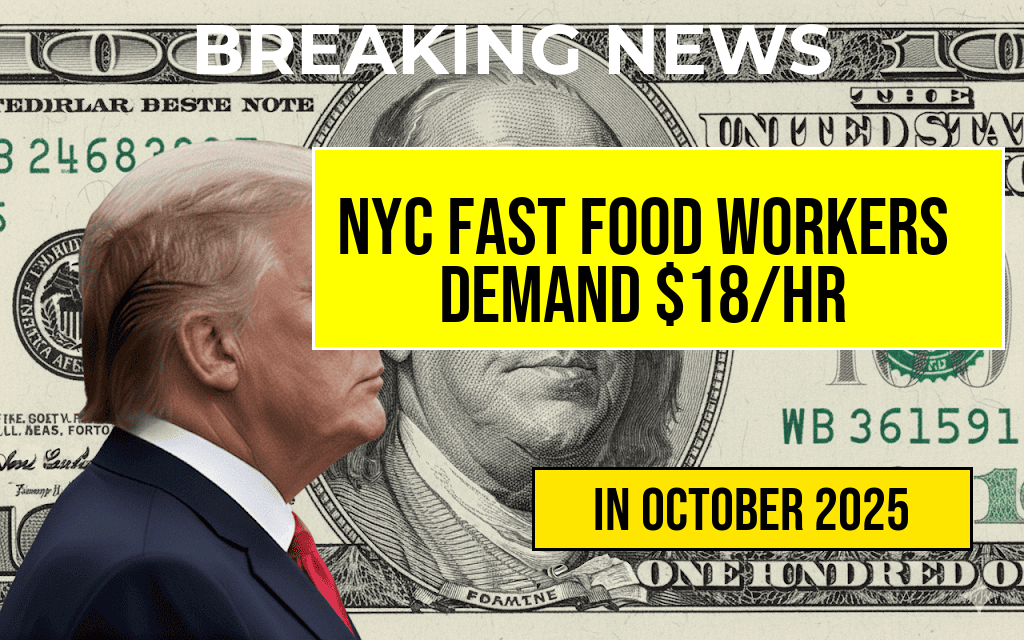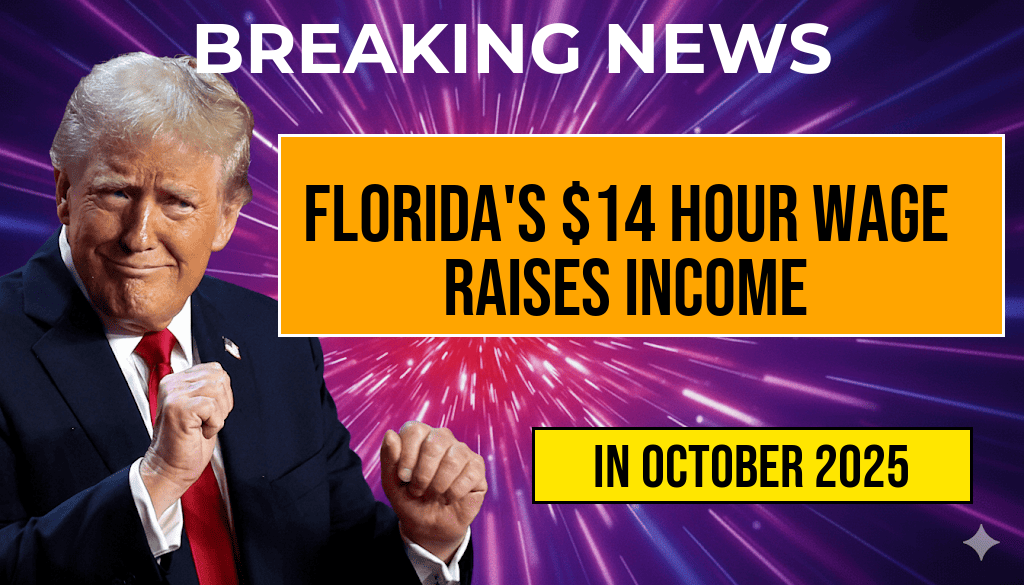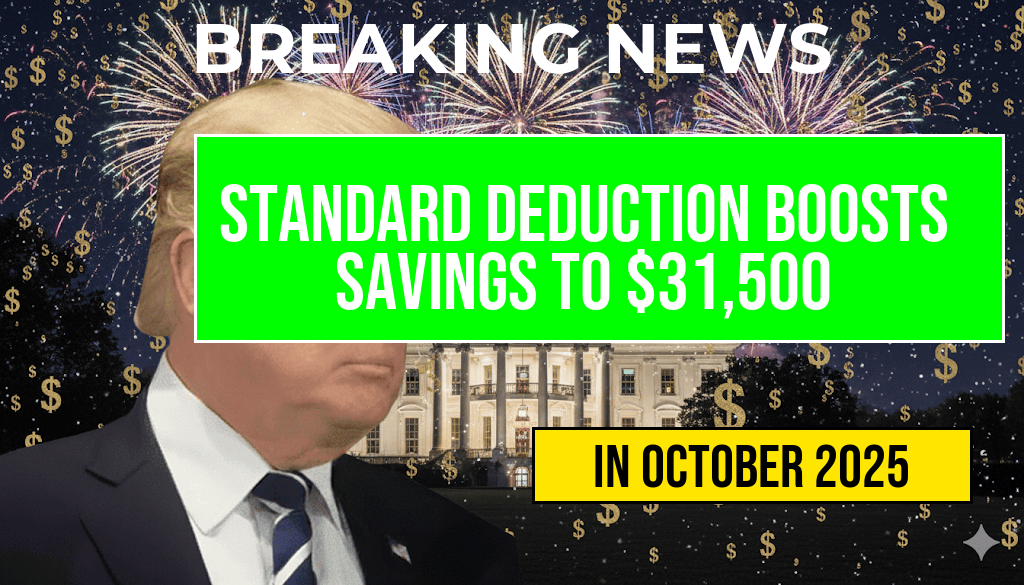Workers employed in New York City’s bustling fast food industry are escalating their demands, advocating for a minimum wage of $18 an hour. This push emerges amidst ongoing debates over fair compensation in a sector characterized by high turnover and demanding schedules. Fast food employees, many of whom are part-time workers and younger adults, argue that current wages do not reflect the rising cost of living in the city, where expenses for housing, transportation, and essentials continue to climb. The movement has gained momentum through coordinated efforts by labor unions and grassroots organizations, aiming to influence city policymakers and corporate chains alike. As fast food giants generate significant revenue, workers contend that a wage increase is necessary not only for economic fairness but also to sustain a stable workforce amid ongoing labor shortages.
Background of the Wage Debate in New York City
The push for an $18 minimum wage in NYC’s fast food sector builds upon broader discussions about wage equity and living standards in the city. Currently, the city’s minimum wage varies depending on employer size and industry, with fast food workers often earning near or slightly above the state minimum of $15 an hour as of 2023. However, advocates argue that this figure remains insufficient given inflation and the escalating cost of living, which has outpaced wage growth over several years. The city’s economic landscape has seen significant changes, especially after the COVID-19 pandemic, which exposed vulnerabilities in low-wage sectors and intensified calls for living wages.
Workers’ Demands and Rationale
For many fast food workers, the fight for an $18 minimum wage represents more than just a pay raise; it symbolizes recognition of their contribution to the city’s economy. “We’re working hard, often with little appreciation or pay that doesn’t cover our basic needs,” said Maria Lopez, a crew member at a Brooklyn-based burger chain. Her sentiments echo those of many colleagues who face the challenge of balancing multiple jobs or working overtime just to make ends meet. Advocates highlight that a higher minimum wage would reduce turnover, improve job satisfaction, and stabilize communities heavily reliant on service sector employment.
Key reasons cited by proponents include:
- Rising housing costs and rent burdens in NYC
- Inflation impacting everyday expenses
- High rates of poverty among fast food workers
- Increased productivity and revenues for large chains
- Employee retention and improved service quality
Responses from Industry and Policymakers
Major fast food corporations have expressed mixed reactions to the wage increase proposal. Some acknowledge the importance of fair pay but cite concerns over increased operational costs, especially for smaller franchises operating on tight margins. “We value our employees and are committed to fair wages,” stated a spokesperson for a prominent chain, “but we also need to maintain the viability of our business.” Conversely, labor advocates argue that the industry’s profitability can accommodate higher wages, citing record-breaking sales figures and shareholder profits. They urge policymakers to consider legislation that mandates a $18 minimum as part of broader efforts to address income inequality in the city.
| Metrics | Current (at $15/hr) | Proposed ($18/hr) |
|---|---|---|
| Average Annual Wages per Employee | $31,200 | $37,440 |
| Additional Annual Cost per Location (for 20 workers) | $36,000 | $43,680 |
| Estimated Revenue Increase Needed to Cover Higher Wages | – | Possible 5-10% |
Legal and Political Landscape
The push for a higher minimum wage intersects with ongoing legislative efforts at both city and state levels. The NYC Council has historically supported measures aimed at improving wages for service workers, but opposition remains from some business groups concerned about economic impacts. Recent proposals include phased increases tied to inflation indices, but advocates argue that immediate implementation of an $18 an hour minimum would provide urgent relief. Legal battles could ensue if employers challenge mandated wage hikes, though city officials emphasize their commitment to supporting low-income workers.
Community and Union Involvement
Labor unions, such as the Retail, Wholesale and Department Store Union (RWDSU), have been at the forefront of organizing fast food workers, rallying support through protests and petitions. Community groups also play a vital role, framing the wage increase as part of a broader effort to combat economic disparities in one of the nation’s most expensive urban centers. “Fast food workers are the backbone of the city’s economy,” said James Carter, a union representative. “They deserve wages that reflect the value they bring every day.”
Potential Impacts and Broader Implications
Implementing an $18 minimum wage in NYC could set a precedent for other cities grappling with similar economic challenges. It may influence statewide policy debates and spark nationwide discussions on fair pay in low-wage industries. Economists remain divided on the long-term effects; some warn of potential job reductions or increased automation, while others highlight the benefits of increased consumer spending and improved quality of life for workers. As negotiations continue, stakeholders are watching closely for signs of legislative action and industry adaptation.
For additional context on wage policies and economic impacts, refer to Wikipedia’s page on US minimum wage laws and Forbes’ analysis of wage increase impacts.
Frequently Asked Questions
What is the main goal of New York fast food workers’ advocacy?
The main goal is to raise the minimum wage for fast food workers in New York City to $18 an hour to improve their living standards and ensure fair compensation.
Why are fast food workers in NYC demanding a higher minimum wage?
Fast food workers are demanding a higher minimum wage to address economic challenges, reduce poverty, and ensure they are fairly compensated for their hard work and contributions.
How does the proposed $18 an hour wage compare to the current minimum wage in NYC?
The proposed $18 an hour wage is higher than the current minimum wage in NYC, which is generally around $15 an hour, representing a significant increase aimed at supporting workers better.
What actions are fast food workers planning to take to advocate for their cause?
Fast food workers are planning to organize strikes, protests, and advocacy campaigns to raise awareness and pressure policymakers to approve the wage increase.
What impact could a $18 per hour minimum wage have on the fast food industry in NYC?
Implementing a $18 per hour minimum wage could lead to increased costs for businesses, but it may also result in improved worker retention, motivation, and overall service quality.






